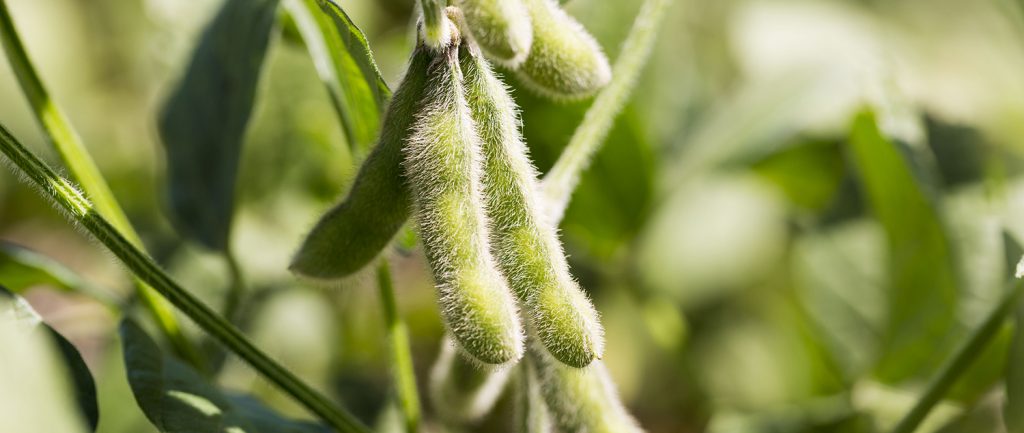Over the course of two decades, biodiesel has proven to be nothing short of heroic in helping to clean Minnesota’s air. This summer, the Minnesota Soybean Research & Promotional Council (MSR&PC) debuted a super-powered campaign highlighting the wonder of biodiesel.
For the next several months, biodiesel’s carbon-reduction message will be splashed across dozens of Metro Transit buses in a comic book-themed campaign sponsored by MSR&PC. The Council has also launched a new website – mnbiodiesel.com – touting the muscle behind this homegrown fuel.
Earlier this spring, the Metropolitan Council approved a measure to invest $122 million in adding 143 new biodiesel buses to the Metro Transit’s fleet. The new buses account for about 15% of the fleet. 46 buses in total will carry MSR&PC’s superhero message.
“As technology has improved, the biodiesel produced in Minnesota today is now far more efficient than how it was produced 20 years ago,” said Chris Hill, a Jackson farmer who serves on the National Biodiesel Foundation. “We’re encouraged the Met Council sees what we do: that homegrown fuel can be part of the solution to the broad environmental challenges we face.”
The intent of the biodiesel bus wraps is to inform Minnesotans that – despite calls for more electric vehicles – renewable fuels are already packing a serious punch when it comes to cutting greenhouse gas emissions.
“With the ongoing debate around ‘Clean Cars’ and electric vehicles, we know that biodiesel is a reliable solution to address climate and energy concerns. It’s reducing carbon right here, right now,” said MSR&PC Senior Director of Product Development & Commercialization Mike Youngerberg, who’s also executive director of the Minnesota Biodiesel Council. “During this fourth year of the B20 biodiesel blend requirement, it is important to remind folks of the countless benefits this advanced biofuel provides for our state. From the soybean farmers who grow the renewable fuel to the end users, we all reap the benefits of the less carbon intense, greenhouse gas reducing fuel.”
Studies show biodiesel reduces greenhouse gas emissions by more than 50% and lowers particulate matter by 47%, reducing smog and cleaning Minnesota’s air. With bipartisan support, Minnesota was the first state in the country to require virtually all of the diesel sold during warm-weather months to contain a 20% biodiesel blend. During the winter months, Minnesota fuel stations sell a 5% biodiesel blend. Each year, cleaner-burning, renewable biodiesel displaces roughly 130 million gallons of petroleum diesel in Minnesota. This is especially important for the older vehicles that lack the pollution control devices now required for all diesel vehicles sold in the United States.
In Minnesota, using B20 in the summer and B5 in the winter has an effect equal to removing the emissions from approximately 245,000 vehicles from state roads each year. According to a recent National Biodiesel Board (NBB) study, switching to B100 (100% biodiesel) would create a 45% reduction in cancer risk when heavy-duty trucks such as semis use B100, and 203,000 fewer or lessened asthma attacks.
“We have always known that biodiesel offers a better and cleaner alternative to petroleum diesel,” NBB CEO Donnell Rehagen said. “This study quantifies the health benefits and shows that by using renewable fuels like biodiesel and renewable diesel, we are bringing positive change to people’s lives, the nation’s health and the economy.”
The U.S. Environmental Protection Agency has declared biodiesel as the first advanced biofuel in the industry. The biodiesel industry now supports nearly 60,000 jobs nationwide and more than 5,000 jobs in Minnesota alone, and it contributes nearly $1.7 billion toward economic activities in the state. It also boosts demand for soybeans by an estimated 13%. Minnesota supports biodiesel plants in Albert Lea, Brewster and Isanti, which produce approximately 85 million gallons of the renewable fuel each year.
“Biodiesel is an economic and environmental winner throughout Minnesota,” MSR&PC chair Cole Trebesch said. “The Council is proud to partner with Metro Transit on this campaign as we continue to work alongside farmers, state agencies and all the important players along the supply chain to make biodiesel a long-term success story in Minnesota.”
Made from an increasingly diverse mix of resources such as recycled cooking oil, soybean oil and animal fats, biodiesel is a renewable, clean-burning diesel replacement that can be used in existing diesel engines without modification. The American Lung Association (ALA) has long supported the air quality benefits of biodiesel.
“The American Lung Association recognizes biodiesel as a Clean Air Choice alternative fuel for its ability to reduce criteria and lifecycle emissions in the transportation sector,” said Lisa Thurston of the ALA.
In 2022, Minnesota Soybean will celebrate the 20th anniversary of B2 being signed into law by then-Gov. Tim Pawlenty, putting the state at the forefront of the nation’s renewable fuel movement.










